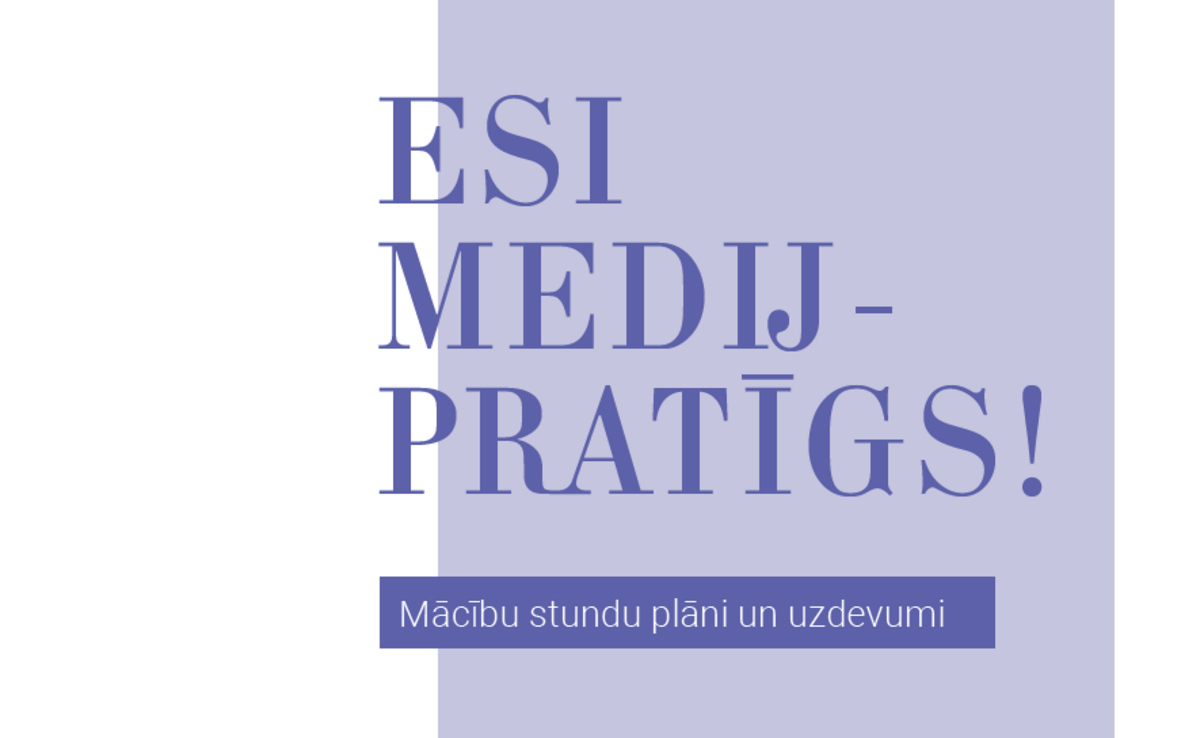
The digital book of media literacy lesson plans "Be Media Literate!" -> download
Authors of the lesson plans and tasks: Dr. hist. Vita Zelče, Dr. phil. Baiba Holma, Dr. sc. comm. Marita Zitmane, Dr. sc. comm Līva Kalnača, Dr. sc. comm. Klinta Ločmele, Ph.D candidate Velta Skolmeistere, graduate and undergraduate level students of communication science – Jana Altenberga, Svjatoslavs Kotovs, Kristīne Liepiņa, Endija Pirante, and Ansis Klintsons.
The creators of the book thank Dr. paed. Prof. at the Faculty of Education, Psychology and Art of the University of Latvia Zanda Rubene for consultations in pedagogy, literary editor Linda Kalniņa, graphic designer Jānis Vēvers, and the executive director of the Faculty of Social Sciences Ilze Kāposta. We also thank IREX colleagues Kaspars Rūklis, Stanley Currier, and Simon Mairson for their support in the project.
The beginning of the collection includes lesson plans to raise awareness of journalism as a process of gathering and preparing information and interpretations offered by the media about the same event. Given the intensive use of social media by young people, special attention is paid to various issues of social media use – the language used in social media, the evaluation of social media content creators’ – influencers’ – publications and videos, digital footprint and digital stress, understanding the difference between reality and the one depicted in social media, ability to deal diplomatically and responsibly with various everyday situations that may arise due to ill-considered use of social media.
The third chapter is devoted to various information formats and risks: financial fraudsters on the phone, the need to examine charts and figures carefully, and persuasion techniques in advertising. A relatively new phenomenon – deepfakes – is also considered. The lessons in this chapter also encourage awareness of the limits of freedom of expression when writing online comments and recognizing hate speech and stereotypes in the media. In conclusion, we offer the topic of historical staging as a form of Soviet propaganda so that we can more easily recognize the propaganda messages today.
The book also serves as a compendium of valuable resources and support for their re-use. Additional resources are provided for each lesson, including in Latvian, where users of the book can deepen their knowledge of the topic.
The collection of media literacy lesson plans and tasks has been developed with the support of the IREX Baltic Media Literacy Programme. IREX is education and global development organization in the United States that works with universities in the Baltics and youth to facilitate critical appraisal of information. The IREX Baltic Media Literacy Programme at the University of Latvia has been implemented since 2020.

 CONFERENCE
CONFERENCE